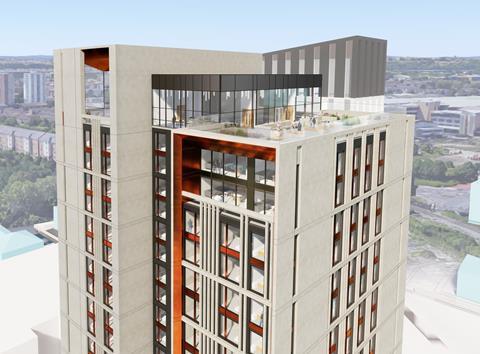Private rental developer says business model is proving resilient to covid crisis
Private rented housing developer Grainger has reported a sharp increase in rental income in half year results that it said demonstrated the resilience of the business in the face of the covid-19 crisis.

The firm said it earned £37m in rent in the six months to March 31, an increase of 27% on the same period last year, with 95% of rent collected in March and 94% of rent collected in April.
The firm said it was continuing to progress work on its 9,000-home pipeline of rental properties, with all of its nine construction sites now “open and active”.
The firm, which claims to be the UK’s largest listed residential landlord, reported pre-tax profit of £49.6m, down 9% on the period in 2019 in line with expectations prior to the covid crisis.
It committed to maintaining its planned dividend, in contrast to most private sale housebuilders, which have cancelled dividend payments.
In a statement to the city the firm said that the lettings market remained active, “albeit at lower levels”, but that the firm had seen a pick-up in enquiries in recent weeks, “returning to normal pre-Covid levels”.
Like-for-like rental income growth on its private rented sector properties was 3.4%. It said less than 2% of customers had contacted it with affordability concerns due to Covid-19, and that ultimately less than 1% had agreed rent deferral repayment plans.
Helen Gordon, chief executive of Grainger, said: “Grainger is in a strong position financially and our portfolio is performing as expected, showing a high degree of resilience during these uncertain times. We have achieved high rent collection, strong rental growth and maintained occupancy levels over 97%.”
She added: “Grainger is well positioned to weather the current economic uncertainty caused by coronavirus, while continuing to serve our customers, retaining full employment and delivering on our growth plans.”











No comments yet